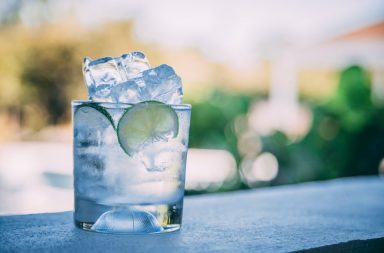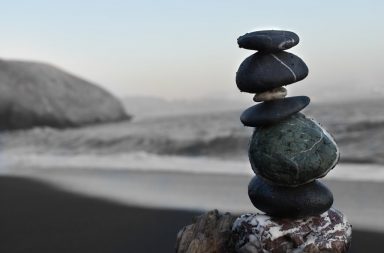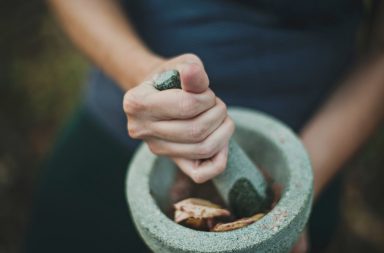If you’re on a diet, and have a night out coming up, vodka might be your drink of choice! But how many calories are actually in vodka? And is vodka less fattening on its own?
It’s a good question, and a question many of us have probably asked before.
In fact, indulging in alcohol can sometimes leave us feeling guilty. We’re all too aware of the additional calories we consume during a night out partying.
Whether you’re a cocktail lover, pint drinker or you prefer to stick to the classic spirits, they all contain empty calories. But what about vodka?
It might only look like water, but is vodka secretly fattening?
Well, we’re going to tell you whether vodka is fattening on its own, and just how many calories it contains!
What is actually in vodka?
Vodka is made through the distilling the liquid from grains such as wheat, rye, corn and sometimes even potatoes.
Vodka is pure alcohol, and whilst it is produced using carbohydrates such as potatoes and grains, it actually contains zero carbs or sugar. This is due to the fermentation process used in the production of alcohol.
Whilst vodka contains no carbohydrates, many other popular alcohol drinks such as wine, beer and champagne contain high amounts of calories and carbs. Unfortunately, when high amounts of carbohydrates are consumed, and unused, our body will turn them to fat – meaning that third round at the pub may contain more calories than you planned!

Photo credit: Ibrahim Boran via Unsplash
Of course, this makes vodka the choice of drink for those dieting or watching their weight. It is also a good drink for after a large meal that has left you feeling bloated as it is a relatively light drink.
So, if vodka is pure alcohol, that means it’s not fattening, right?
Is vodka fattening on its own?
How many calories does it contain
To understand whether vodka is fattening on its own, we need to know how many calories vodka actually contains.
When it comes to working out calorie content, however, there are several factors to consider. Firstly, what brand of vodka you are drinking, and secondly, how high the proof of the vodka is.
The proof, in vodka or any liquor, refers to the percentage of alcohol found in the spirit. The percentage of alcohol found in vodka depends on the brand, and the quality of the alcohol. Generally speaking, more expensive vodka tends to have a higher proof.
Why is this important?
Well, on average, the higher the proof or alcohol content, the higher the calories. Now, with a spirit such as vodka, which contains little in terms of additives, the difference in calories tends to be minimal.
The most common brands of alcohol found in bars, clubs, or restaurants, such as Smirnoff, Grey Goose and Absolut vodka, are all 80 proof.
So, a standard size 1.5 ounce shot of 80 proof vodka is around 96 calories – doesn’t sound like a lot does it? In actual fact, no. Vodka is relatively low calories. It is what we tend to mix vodka with that can increase its fat content.
But what can we mix vodka with to avoid it becoming fattening?
How to stop vodka becoming a fattening drink
If you are a vodka drinker you may be in the habit of using sweet, high calorie mixers without even realising.

Photo credit:
Dan Dennis via Unsplash
Unfortunately, this includes the most common, and popular vodka mixers such as lemonade, Coke, Red Bull, and even tonic water. In fact, these same mixers are also the culprit of hangovers too!
Find out what is the best mixer for vodka to stay hangover free!
Yes, all these mixers that take the edge off the harsh taste of vodka contain high amounts of sugar. This can double, or even triple, the calorie content of your seemingly fat-free drink.
The question is, how can you keep vodka fat-free?
Vodka and water
Is vodka fattening on its own? No, and it’s also not fattening when mixed with water either.
If you can’t quite face vodka straight, diluting it with water and adding a slice of lime or lemon will soften this hard spirit. Vodka and water is the lowest calorie drink you will probably find, but it may take a bit of getting used to if you’re switching from a vodka and lemonade!
Vodka Soda
Want something low calorie and low sugar? Well, vodka and soda should be your drink of choice!
Soda water contains a small amount of sugar, and very little flavour, meaning that it will hardly add to the calorie content of your vodka.
Of course, if vodka and soda isn’t to your taste, another low-calorie drink to try is gin and slimline tonic!
How many calories are in gin and slimline tonic?
Vodka and cranberry juice
Cranberry juice is a great vodka mixer for those wanting something a little sweet with their liquor!
As an antioxidant, cranberry juice flushes out toxins in our body, and for a fruit juice, it is tangy rather than sweet. Is it as low calorie as a vodka and soda? No, but it will still be better than your vodka and Red Bull!

Photo credit: John Arano via Unsplash
Other alcoholic drinks that contain vodka, such as popular vodka cocktails can also be enjoyed as low-calorie drinks! In fact, and many bars and pubs will now give you the option to request them without sugar syrup!
So, is Vodka fattening on its own?
All you vodka drinkers out there will be pleased to know that vodka isn’t fattening on its own compared with other alcoholic beverages!
For an alcoholic drink, vodka is relatively low calorie, particularly in comparison to other popular drinks such as wine and beer. Unfortunately, popular vodka mixers are what tends to increase the calories and fat content. If you are watching your weight or cutting down on sugar, it is these sugary additions you should be trying to avoid.
It is important to remember however, that the key is moderation. Whilst vodka may not cause you to gain significant weight after one indulgent night out, drinking in excess will cause weight gain over time.
Do you think you will switch your vodka Red Bull for a vodka and water? Tell us in the comments below!


